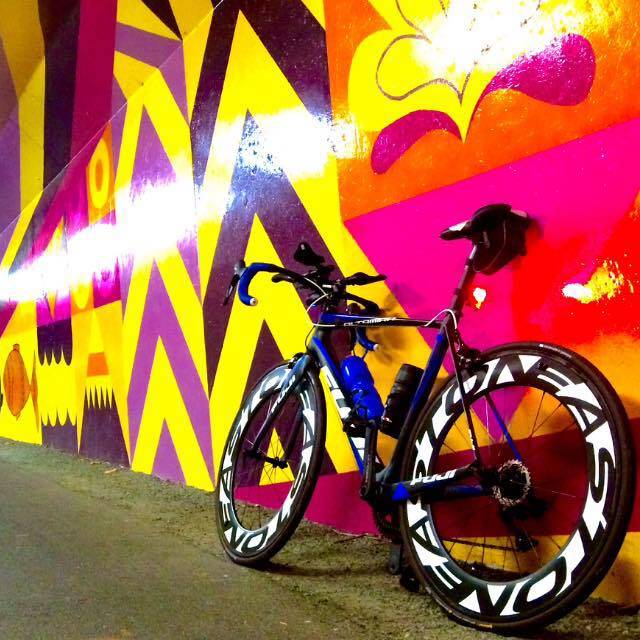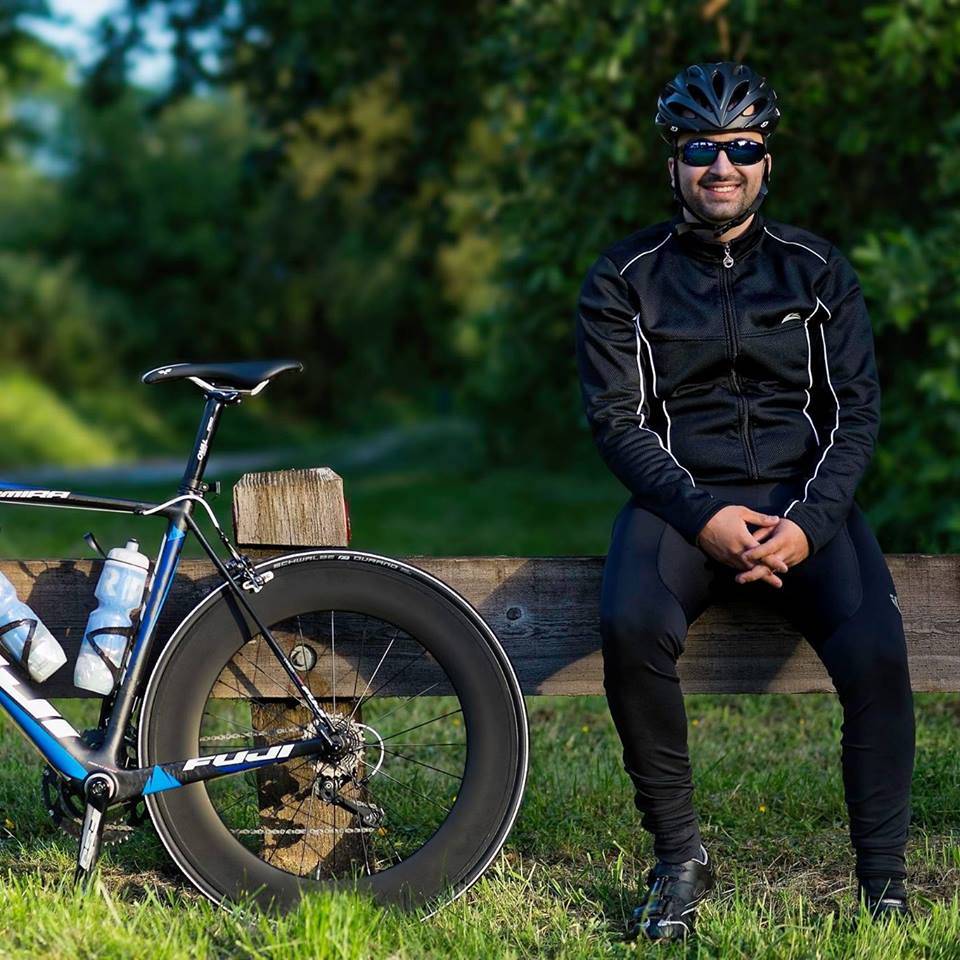Overcoming addiction is formidable to say the least. 28 year old Sergey Kasparov is successfully replacing an unwholesome relationship with tobacco with a wholesome addiction to cycling. Recently, Sergey’s exploits have been getting noticed on Strava where he is at the top of the leaderboard for numerous segments. Seattle-area racer and Strava KOM hunter Yee Feng brought Sergey to my attention.
(Strava is a website popular with some cyclists and runners, that among other things stack ranks performance for various cycling and running segments.)
Originally from Yerevan, Armenia, Sergey came to Seattle in “a quest for a new beginning.” Like too many folks, his lifestyle was taking him down an unhealthy path.

“I grew up eating a lot of fast food and had little care for my health and fitness. I was extremely overweight. Smoking came about at the age of 18 due to the sole purpose of curiosity. Unfortunately, it quickly turned into an addiction and ruled over my life by an entire pack a day. The moment I realized I wanted to quit smoking was the moment I earned my first KOM (King of the Mountain) segment record on Strava. Prior to my first KOM, my past attempts at quitting smoking were simply not driven by any motives. I learned that for a change to actually take place, a motive of some kind must be present. I was fortunate enough to work my butt off to achieve that motive (the Strava KOMs) as a daily smoker.”

Prior to cycling, Sergey experimented with bodybuilding and powerlifting, but he loves the speed and freedom he feels on a bike.
“Cycling was always a passion because it freed my inner prison. The ambition to travel and achieve momentum through the forces of your own body was what drove me to pursue cycling as a major hobby. I began cycling in 2012, but only started taking it seriously (riding almost every day) in 2015. My journey began with a Fuji flat bar hybrid which was an 8-speed all-terrain commuter bicycle. Upon graduation, I was gifted with my first carbon road bike which took my love for cycling into another dimension. I began focusing on speed and time for every ride and this focus is what sparked my interest in time trialing. At the moment I do not race, however, my plan is to hopefully get into racing later down the road. I am mostly a solo rider.”
Strava’s competitive orientation has helped him to maintain the motivation to stay away from smoking.
“Joining Strava has impacted my views on a general support system, and aside from getting my first KOM, I would have to say that the friends and followers that Strava has allowed me to obtain plays a major role in quitting smoking as well. Strava is a wonderful tool to stay motivated and keep the friendly competition alive. I believe Strava will continue to play a major role for me as a non-smoker to keep me off the cigarettes for good.”

I’m a Strava skeptic and among those who feel that Strava creates a mindset that “every day is a race day.” Although I was an early adopter, these days I only post rides and runs that are notable. Like a day-long group ride in the Cascades, or a fast or long run. I store my workout data on Garmin’s service, and it is (mostly) set to private. The pursuit of Strava KOMs has resulted in at least one death, and is enough incentive for some folks to dope. But, there is no denying that competition, even if it’s virtual, is an important motivator for some folks. Moreover, services like Strava can serve as a new foundation for those who want to change their social networks. The structure of our social networks is perhaps the most important determinant for health and fitness: “You become like your social network.”
I asked Sergey about the underlying motivations he feels from using Strava. The numbers are important to him, but the support from his Strava friends is the real motivator in moments of weakness. His Strava friends give him the opportunity to practice Rule #5.
“It is a mixture of both. Ultimately, I rely on my numbers and the constant progress of my performance for that is the driving force of my motivation. However, getting to know other like-minded athletes and staying on track with friends’ activities also motivates me in a way other than my performance. The support system on Strava motivates me to keep going and not quit cycling. There are many days, primarily in the winter time, where I feel like throwing in the towel but the friends and strangers on Strava help me realize that regardless of the weather, miles are due and we do what we can to get them in.”

Out on the road, Strava is a mechanism for Sergey to connect with others.
“I have riders that approach me on the trail and say “Hey! You’re Sergey! I’m following you on Strava!” The world is indeed small when it comes to the local community of riders and it warms my heart knowing that the support system goes beyond the virtual world. So yes, there are many folks that I know on Strava, in person. In addition, I probably would have never met a few close friends due to Strava since I would always see them riding but never knew who they were until we connected through the Strava platform. All in all, Strava is not only a great tool for success, it is a wonderful social network in regards to connecting people and bringing them together to enjoy the true beauty of cycling.”
This aspect of Strava is not new. Back in the early 2010’s, Massachusetts resident Ernest Gagnon, suffering obesity, friended a bunch of fit folks on Strava as a way to change the structure of his social network, and thereby lose weight. For even more inspiration, read his Strava profile.
Now that Sergey has spent time on the path as an ex-smoker turned avid cyclist, how might his approach work for others?
“I strongly believe that if anyone puts their mind to a passion within any form of sport, that he or she can achieve amazing results and benefit their health and fitness. I sure do hope that my story influences like-minded cyclists to make changes in their lives that they happen to be struggling with. I think it all comes down to how bad you want something and how far you are willing to get out of your comfort zone to make that change.”
“I think it’s important to find a motive. There is a limited success rate for a smoker, or any kind of addict, to pursue to quit if he or she does not have a reason. Finding something that allows you to benefit from escaping your addiction is vital in a sense that it will become an ongoing support system which will allow the person to stay off smoking and not relapse like most smokers do.”

Sergey’s motto: “When muscle and machine connect, extraordinary things happen.”
I completely agree. It’s impossible not to smile within 30 seconds of getting on a bike.
